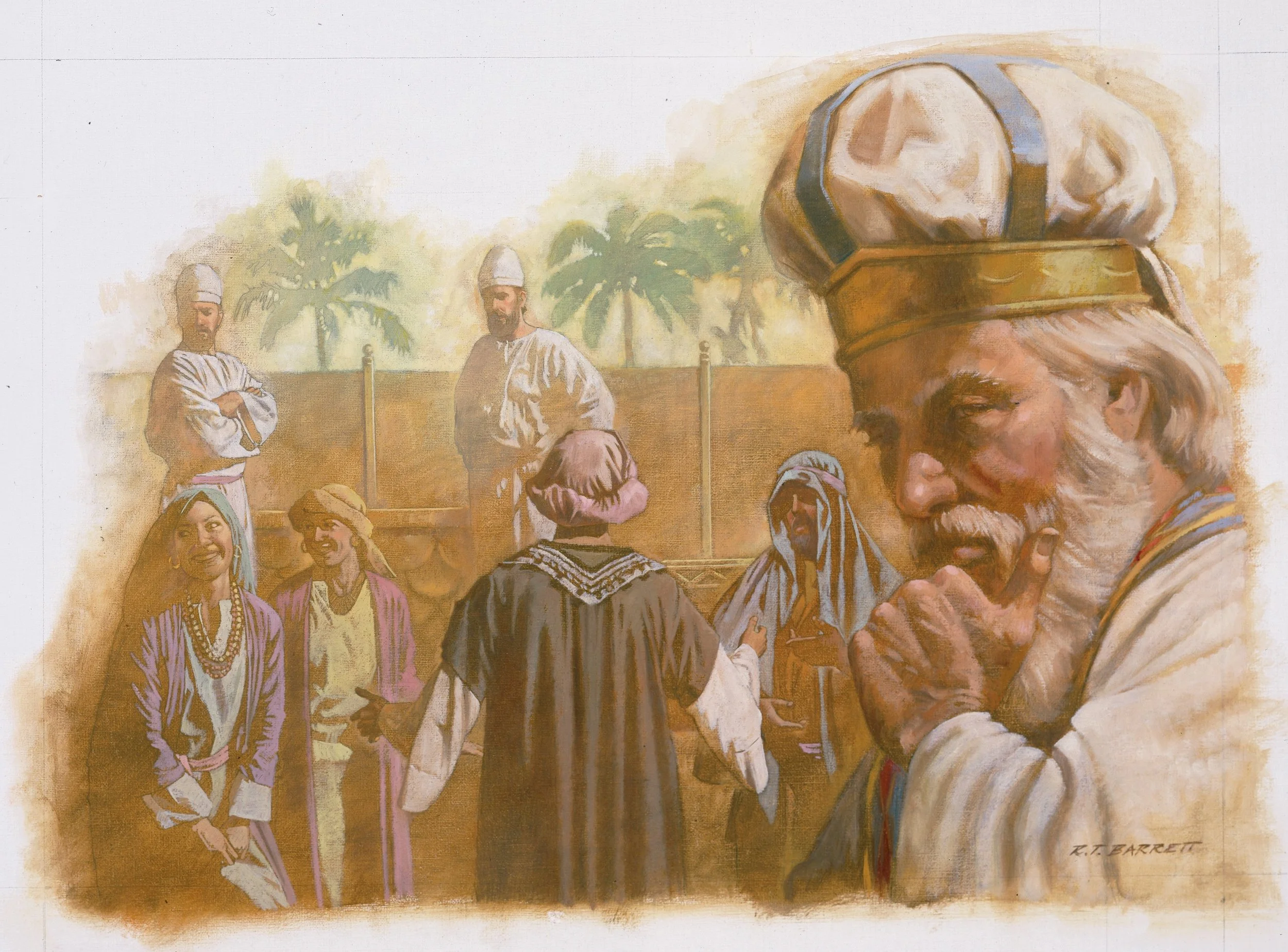1 Samuel 2:26-36 "The Portrait Hall": Eli and the Ignorance Excuse
Introduction: One of the saddest memories of the portrait hall of First Samuel is the priest Eli that ignored problems in hopes they would just fix themselves. It was a failed strategy, and this morning we will see the deception of convincing ourselves that “everything will work out fine”.
Eli Had a Great Deal Going for Him:
His position and heritage (1:1-3): He was clearly a priest of the Most High, from a family of priests. The family was led by God, chosen by God and equipped to serve by God (1 Sam 2:27).
His dedication to the work: He was on the job (1:9), attentive to the people (1:12-13), direct in dealing with the sin of people at the Tabernacle (1:14).
His personality: He was encouraging to Hannah (1:17) and later to Elkanah (1 Sam 2:20).
His example: He raised a godly young man in Samuel (1 Sam 1:25, 2:18-19, 26; 3:7).
A quick reading makes Eli look like a victim of wicked children:
He calls them in to correct them (2:22) and tells them what he heard they were doing (2:22b).
He asks them “Why?” (2:23) and tells them he heard the report circulating (2:24).
He warns them of the trouble it was causing for all Israel (2:25).
Yet, Eli was not a victim, he was a participant in a sin that we easily overlook even today! 1 Samuel 2:29 shares two key issues Eli did not truly deal with:
1) Choosing to reverse God’s priorities with those that seem good to us (1 Sam. 2:29a).
2) Over-indulging and under-disciplining our lives and hearts before God (1 Sam. 2:29b).
Eli’s children reflected in excess what Eli did in a more moderate way.
He was undisciplined at ate too much himself (1 Samuel 4:18).
He was embarrassed at the reputation the boys gained (1 Sam. 2:23-24) but still cared more for his sons than for God’s standard in all their lives.
Look at what God told Him would happen (1 Sam. 2:30-36):
1) God will keep His promises and not reverse them, but makes effective another principle that becomes operative in Eli’s life- the Weight Principle: I will place more honor on those who value what I value. If you want God to use you more effectively, you must choose to place your choices and values in line with what He says is most important (2:30).
2) A second penalty was issued in the Fulfillment Principle: If you place your trust in something other than what I say you should, you will live to regret that choice. Your riches will not satisfy, your children will not remember you, your spouse will fail you, the job will pass you by (1 Sam 2:31-34).
3) A third penalty – in the form of a redeeming promise – was also levied in the Blessing Principle: Because you know me and I have promised to bless my children, I will not cut off all your blessing. You will wish you had changed your priorities in that day, but you will not be destroyed (1 Sam. 2:35-36).
Compare that to what Paul taught the Corinthian believers in 1 Corinthians 3:11-18.
Eli’s portrait should show us three lessons:
Place your life’s emphasis on what God’s Word teaches will please the Lord!
Decide to deliberately order the fulfillment of your life in what God’s Word teaches should be fulfilling.
Decide now to build on to your salvation experience a walk that is worthy of your calling!
Remember: Problems don’t fix themselves, they are opportunities God grants for US to work with HIM to fix things, and learn from the process.




